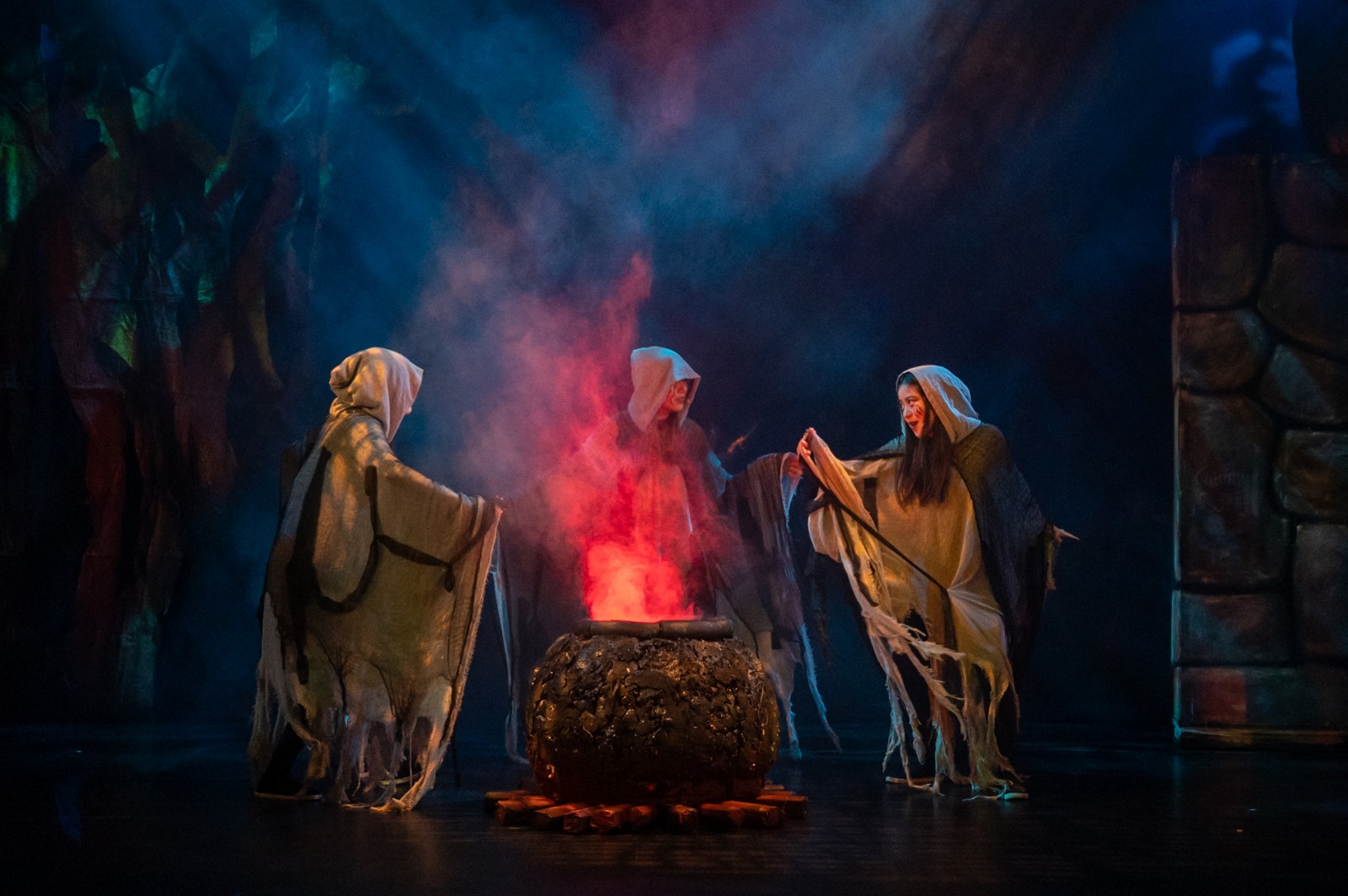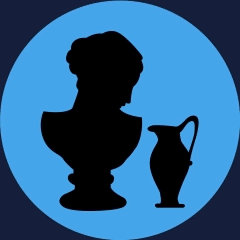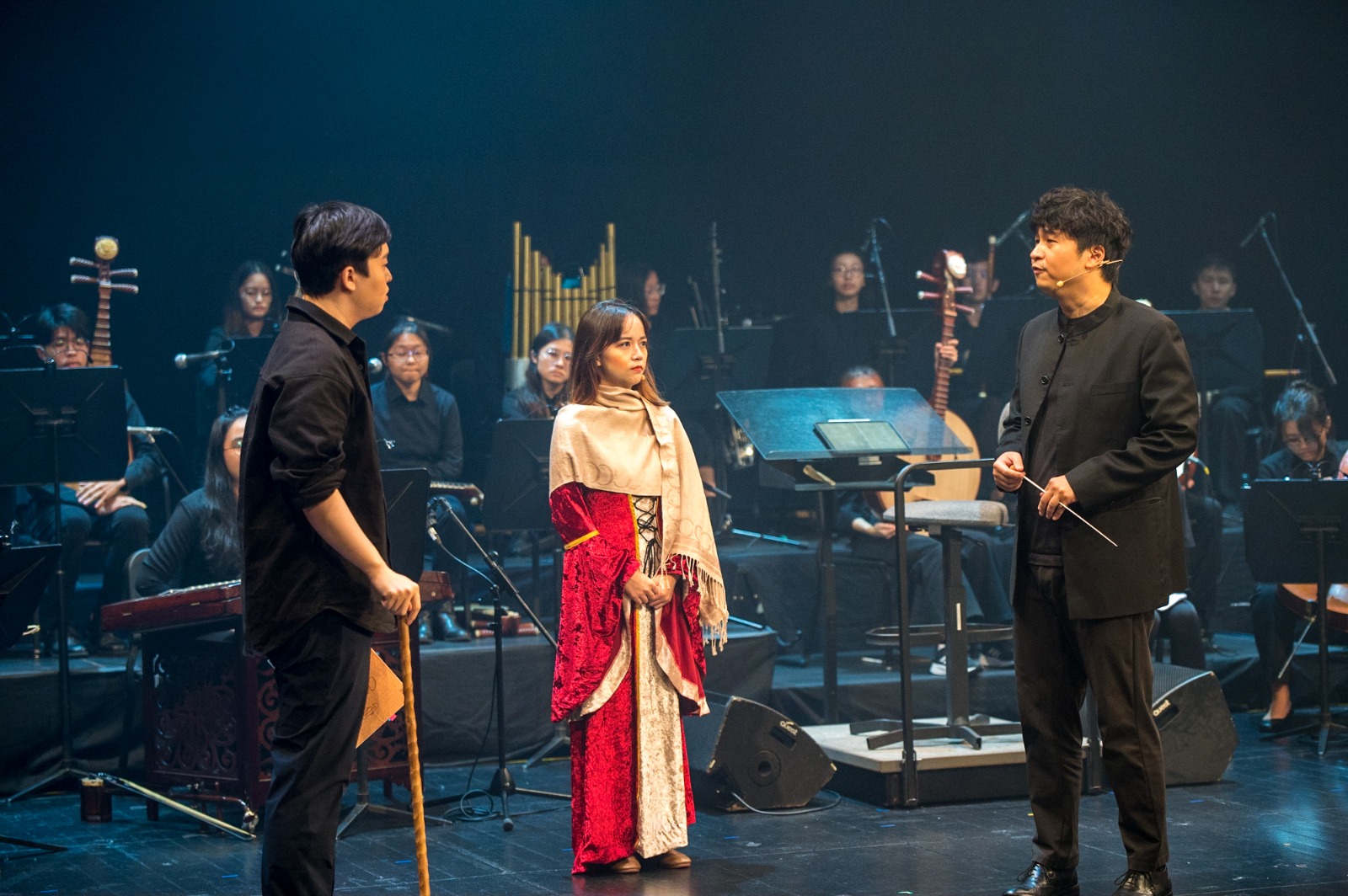As a seasoned conductor, Moses Gay is well-versed in studying musical scores filled with performative directions. What he is not used to, however, is having to read theatre scripts and act while waving his baton on stage.

NUS Chinese Drama and Chinese Orchestra question the value of arts in Essentially Macbeth
In most productions, musicians are typically hidden in the pit, a lowered area in front of the stage. But in Essentially Macbeth – restaged by the Singapore Chinese Cultural Centre for Cultural Extravaganza 2024, the conductor and orchestra take centre stage and double up as actors in the play.
“I had to study the script well so as to know when to ‘act’ and when I can safely be a ‘musician’,” said Gay, conductor of the National University of Singapore (NUS) Chinese Orchestra.
The first-of-its-kind collaboration by NUS Chinese Orchestra and Chinese Drama made its debut at the NUS Arts Festival last year. It tells the story of a group of ex-drama club members coming together to stage Macbeth and rekindle their passion for theatre, forcing them to reexamine the significance of the arts to their lives.
The innovative crossover between Chinese music and theatre earned the team an invitation to restage the show at the Singapore Chinese Cultural Centre’s (SCCC) Cultural Extravaganza 2024, an annual festival that spotlights local arts groups that embody a distinctive Singaporean culture. This time, the play will feature new cast members and a new set on the SCCC stage.
“It is basically a brand new play,” said Judy Ngo, director of the play and principal tutor of NUS Chinese Drama.
Essentially essential
At its core, the play aims to tackle the long-standing question: Are the arts essential? It’s a perennial debate, with largely differing camps.
Essentially Macbeth reflects this concern, in which Macbeth’s ambition to be king parallels the play’s lead character’s seemingly futile endeavour to elevate the place of the arts in Singapore, said Ngo.
“I wanted to combine three art forms—literary text, Chinese orchestra, and drama—while taking a humorous angle,” she shared, when asked about her overall vision for the show.
For Gay, it was the difficulty of having to “break free from (their) introverted selves” that made being part of this production a whole new experience for both him and his musicians. “Acting clearly isn’t my forte,” he added with a smile. If there’s anything that audiences should take away, it is that art is a labour of love.
Said Ngo, “I hope to open the door to how and what an artist in Singapore has to do to survive and create.”
Image credits: NUS Office of Student Affairs and Malcolm Fu







.jpeg)
.jpeg)
.jpeg)
.jpeg)
.jpeg)